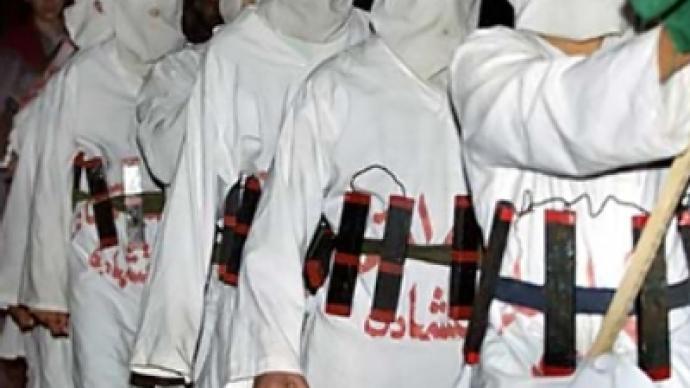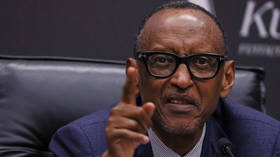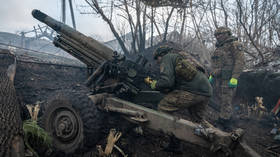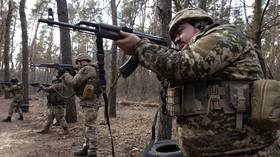Moscow bombings could be masterminded abroad – Russia’s Foreign Minister

Foreign Minister Sergey Lavrov has urged the international community for better coordinated joint efforts in fighting terrorism as he believes that the recent Moscow terror attacks were not a domestic matter.
Lavrov has put forward the theory that the Moscow Metro explosions could have been masterminded by international terrorist groups from Afghanistan or Pakistan:
“Anything could be possible. We know that on the territory between Afghanistan and Pakistan, traditionally considered No Man’s Land, underground terrorism has become entrenched. We know that numerous terrorist attacks were planned there – not only for Afghanistan or nearby countries, but for Central Asia also. At times those plans even led all the way to the Caucasus.”
Read more about the reaction of Russian authorities
Stressing the importance of joint efforts in fighting terrorism, the foreign minister also noted that the sources of terrorism funding, drug-trafficking, should be investigated. Sergey Lavrov has also told Interfax news agency that the investigation into the Moscow bombings will be done “quickly and effectively”.
“I am convinced that those who masterminded and funded those terrorist acts will not be left unaccounted for,” added Sergey Lavrov.
For comments RT turned to
- Georgy Mirsky, professor and doctor of historical science at the Institute of World Economy and International Relations of the Russian Academy of Science
and
- Igor Khokhlov, the candidate of political science at the Institute of World Economy and International Relations of the Russian Academy of Science
Academics react
“When foreign minister Lavrov speaks of some outside forces, hidden somewhere between Afghanistan and Pakistan, everybody knows what he means. It's the same old Al-Qaeda. Of course, Al-Qaeda is not what is used to be. Now it is a much bigger terrorist global network. And of course it would be foolish to believe that Russia could stay away from this comprehensive terrorist campaign,” thinks Georgy Mirsky, professor and doctor of historical science at the Institute of World Economy and International Relations of the Russian Academy of Science.
…it's the same old Al-Qaeda…
He also believes, the timing of the attacks is not a coincidence, saying that through these acts, the terrorists wanted revenge for the deaths of some well-known Al-Qaeda leaders who were killed in March. For Al-Qaeda, he thinks it does not make that much of a difference, whether Russia is fighting in Afghanistan now or not:
“Twelve years ago Osama Bin Laden created an organization: a United Islamic front for fighting Jews and crusaders. Well, to them, Russians are crusaders.”
In his opinion, the terrorists were seeking to achieve two goals: to destabilize the situation in the North Caucasus and to increase anti-Islamic sentiments in the society.
“They wanted to influence the Russian authorities in such a way that they refer to harsh methods against the terrorists and against all those suspects, Muslims in the Northern Caucasus, which will result, of course, in widespread protests of the Muslims living in the North Caucasus, against the Russian authorities and that will further aggravate the situation in the region,” thinks Mirsky.
…the goal of the terrorists: to stir, to boost anti-Islamic feelings …
He also believes that by these bombings terrorists were trying to increase Islamophobia in Russia: “Many Russians now will begin to suspect all the Muslims, which is exactly what happened in America. The word ‘Muslim’ in America has become almost a synonym for the word ‘terrorist’. The same thing is happening in Russia now. More and more people begin to look at Muslims with suspicion. For instance a woman who wears a traditional Islamic dress and covers her head is seen by many as a terrorist. And this is precisely the goal of the terrorists: to stir, to boost anti-Islamic feelings among the Russian population, which will further alienate Russians from the Muslim citizens of the Russian Federation.”
He thinks the ultimate goal of the terrorists is to separate Muslim republics from Russia and create something like an Islamic State or Emirate:
“When I was in Central Asia, in Uzbekistan, I met some Wahhabis, and they told me that their goal was to create an Islamic republic first in Uzbekistan, next in Kazakhstan and then you see, it is not very far from Kazakhstan to Tatarstan and Bashkortostan, two of the largely Muslim-populated republics in the heart of Russia. Well, their idea is of course absurd and may be called a utopia, but these are the people who are ready to die and to kill for this goal and that is the point.”
Igor Khokhlov, the candidate of political science at the Institute of World Economy and International Relations of the Russian Academy of Science, disagrees.
He does not think that the recent terrorist acts will increase the anti-Islamic sentiments in the society, since Russia, unlike Europe, for instance is historically a country where several religions have lived in one territory.
“For centuries, there have not been religious wars in Russia and people have learned to live together and we do not really have conflicts on religious grounds.”
He believes, the terrorists were once again trying to intimidate and frighten the population, to create panic, thus reminding the world that they exist and they are active:
…it is a part of one global terrorist chain…
“The terrorists constantly have to remind about themselves, attract public attention, thus demonstrating the inability of the authorities to protect their own citizens. And Lavrov is absolutely right, by connecting the attacks in Moscow, and the situation in the North Caucasus with Afghanistan and Iraq, because it is a part of one global terrorist chain.”However, he thinks that despite recent bombings, the Russian security forces have been successful in fighting terrorists in the North Caucasus:
“Terrorists in that region are under a lot or pressure from the Russian security forces and are losing their support, and society in the North Caucasus is not supporting those extremists,” thinks Khokhlov.
No matter what measures you take and how hard you try, it is impossible, he thinks, to eliminate those attacks all together, but the measures that the Russian authorities are taking at the moment are, in his view, the right ones.














